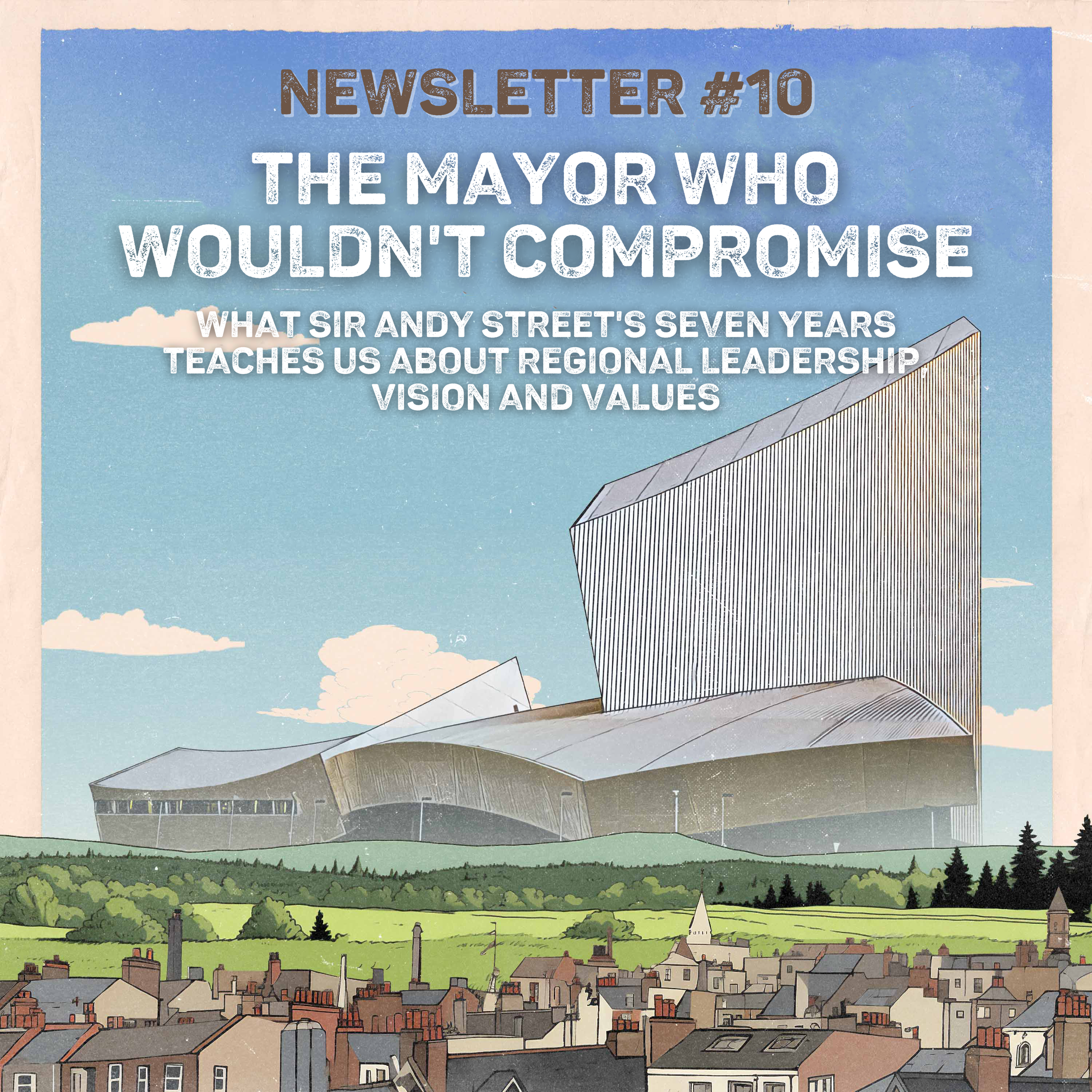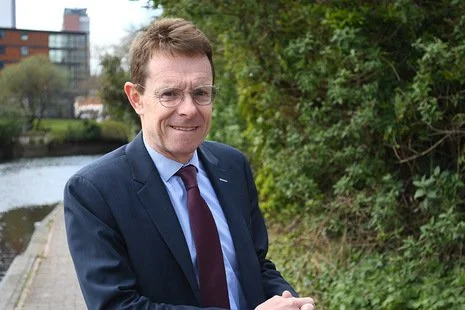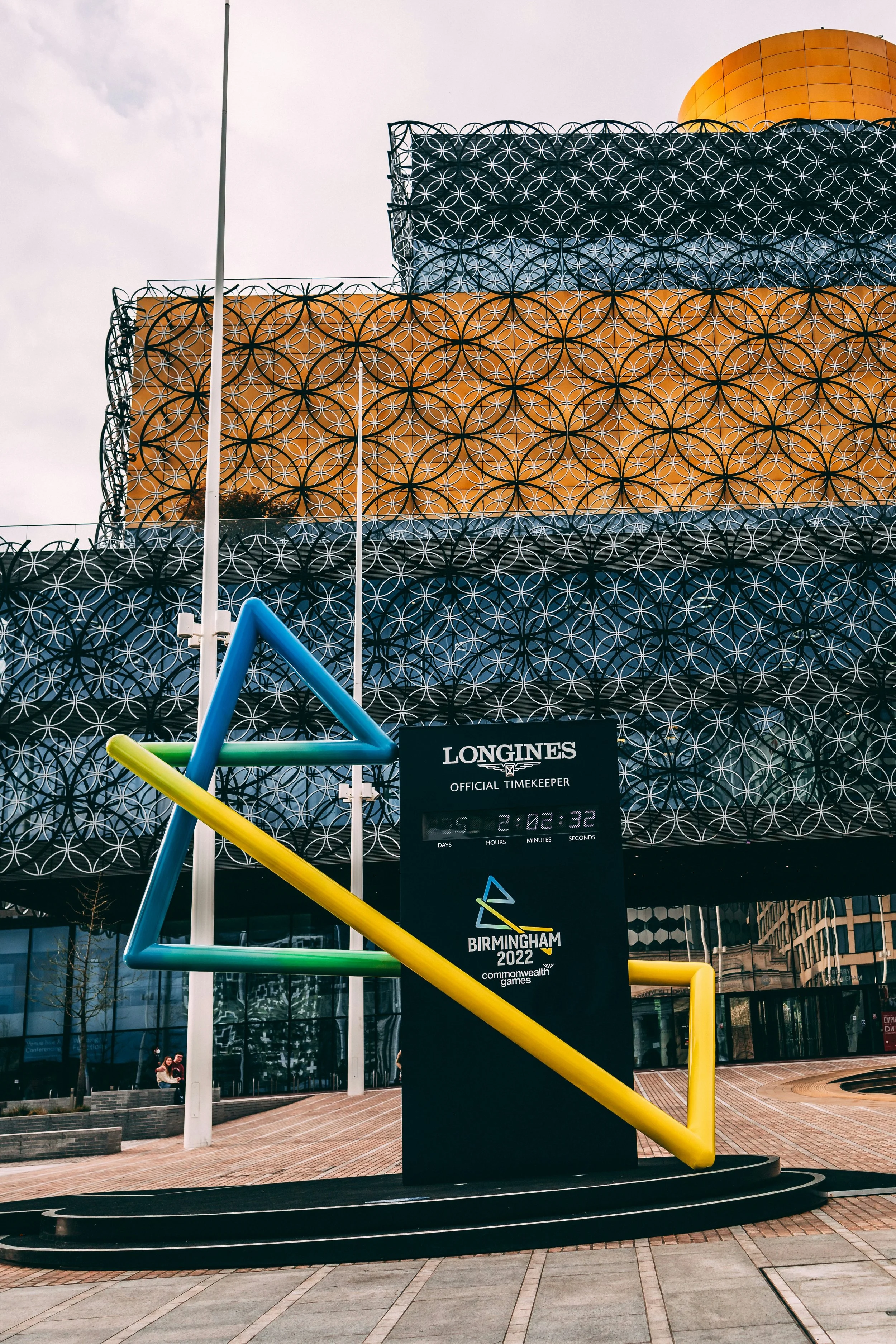Welcome to the tenth edition of the This is the North podcast newsletter.
The Mayor Who Wouldn't Compromise:
What Sir Andy Street's Seven Years Teaches Us About Regional Leadership, Vision and Values
By Alison Dunn, with insights from Sir Andy Street.
Photo depicting Central Birmingham by Lulu Back courtesy of Unsplash
When Sir Andy Street lost his re-election bid as Mayor of the West Midlands by just 1,508 votes last year, journalists across the political spectrum said the same thing: whatever you thought of his politics, he came out with his personal integrity intact.
In an era of political trimming and populist positioning, here was someone who placed people and place above the party line. Sitting down with Andy recently in his Birmingham home, I wanted to understand what that actually meant and what it might teach us about the kind of leadership our regions need.
From Mavericks to Mayors
After thirty years at John Lewis, rising to CEO, Andy could have stayed in retail. Instead, he caught what he calls "the bug", not of politics, but of executive leadership anchored in community.
"I've never wanted to be an MP," he told me flatly. "It was the mayor's job that attracted me because it was an executive job and it was rooted in a place."
This distinction is crucial. As an MP, you answer to the party whip. As a mayor, you answer to the citizens of your region. When Andy disagreed with his own Conservative government over HS2, he didn't quietly toe the party line. Instead, he held a press conference outside then-PM Rishi Sunak's hotel at the party conference, led the 10 o'clock news, and fought publicly for what his region needed.
Region first, party second.
Photo from GOV.UK
Photo depicting Birmingham during the 2022 Commonwealth Games by Korng Sok courtesy of Unsplash
“I never compromised on my value set.”
A Model That Works Regardless of Party
What makes Sir Andy Street's story even more compelling is that it's not an outlier. When we look to Andy Burnham, Labour Mayor of Greater Manchester, the similarities are striking. Despite different political parties, both regions face near-identical challenges with nearly identical populations and economic output.
Both built their roles from nothing. Both operated cross-party combined authorities. Both put place before the party. The model works, regardless of political stripe. But here's the bit most people don't realise: making it work requires more than goodwill, it requires genuine structural collaboration, even when your own party isn't in the majority, and in our conversation, Andy described exactly what that looked like in practice.
The Cross-Party Reality
Andy was a Conservative mayor who never had a Conservative majority on his board. For seven years, every single financial decision taken in the West Midlands Combined Authority was cross-party.
"We proved you could do it," he said with evident pride. "And you know, that's so much against the grain of how Westminster politics is in London."
In a region split evenly between 14 Conservative and 14 Labour MPs, they had to work together. And they did. Delivering the Commonwealth Games, securing massive public investment, building regional capability from nothing.
When I asked why this seems impossible at the national level, his answer was simple: "The thing that unites people is the interest of the local place."
But here's what Andy learned over those seven years: cross-party collaboration at the regional level, while transformative, can only go so far when you're still operating with London's money under London's rules. You can work together brilliantly on the Combined Authority board, but you're still writing business cases to Treasury officials using a methodology that systematically favours the capital. Real regional power requires fiscal devolution—and Andy learned this truth the hard way.
The Rubicon Moment
"We came so far in seven years, but there was a lot more to be done," he told me. "My regret about losing is I wasn't able to do more. And the real big breakthrough to come was what we would call fiscal devolution, where we're able to retain taxes here rather than all taxation being levied here, then going to London, and we apply for some of it back."
He paused, choosing his words carefully. "The trailblazer deal gives you a 'single pot' but that's still London's money coming back. I wanted to hold the money here. That was the breakthrough that still had to come. The Rubicon moment, I call it."
This wasn't abstract policy talk. Andy had watched Jeremy Hunt as Chancellor express support for deeper devolution. "Had Jeremy Hunt and I both been reelected, it would definitely have come. Jeremy's written books about it." Neither happened. And Andy believes the current government won't pursue it. "Rachel Reeves has made it very clear, the Labour government is not making the progress on devolution that should have been made."
Seven years of proving cross-party collaboration works. Commonwealth Games delivered. Regional capability built from nothing. And the one breakthrough that would have made it all sustainable, fiscal autonomy, remains out of reach.
Sitting in Andy's Birmingham home, I felt the weight of that unfinished work. But there's another cost to this broken system, one that's painfully personal.
The Cost of Integrity
Since losing his mayoral position last year, Sir Andy has applied for several high-profile public sector leadership roles. His CV: 30 years building Britain's favourite brand, seven years leading a region, praised across the political spectrum for integrity. Yet none were successful. Why?
"It is apparent that it is because of my politics," he said matter-of-factly. Throughout those seven years, his values didn't make decisions harder, they made them easier. "Whether it was taking on your own government, people say that must have been hard. No, I knew what was right."
That moral clarity is rare. And we're rejecting it because of party labels, creating a human cost to this political tribalism that reveals just how broken our system has become.
Understanding Place Through Culture
Andy's clarity about values extends to how he thinks about regional identity. Now chairing Birmingham Rep, he sees culture as both economic engine and social glue. The creative industries are thriving in Birmingham—growing fast, employing people. But there's something deeper.
"Any society that's cohesive needs its art and culture to tell its story," he told me. Whether programming productions about Kabul, Sikh generations from Wolverhampton, or the Windrush generation, the Rep plays its role in reflecting Birmingham's diversity.
I asked him about the parallels with the North. He didn't hesitate.
"Newcastle has its proud tradition. It's got a different economic history, you had shipbuilding, coal mining. We didn't. But the stories are basically the same of very proud big cities that had their industries that went into decline and had to redefine their economic purpose. There's been a lot of dislocation in that, which has been hard. But there's a deep pride. Deep capability as well."
Then he said something that stuck with me: "I always say, you need to understand your past to be able to plan your future. And I think those facts are the same in all of the big cities that made Britain what it has become."
Seven Years, One Principle
Sir Andy Street's story reminds us that regional transformation is a marathon, not a sprint.
It requires leaders willing to work cross-party, who'll fight their own governments when necessary, and who understand that place-based leadership creates conditions for collaboration that Westminster's structures make nearly impossible.
What makes this possible? The principle Andy named from the start: never compromising on your value set. Region first, party second. Clarity about what's right, even when politically inconvenient.
Seven years proved that values don't make leadership harder, they make it possible. That model, cross-party, place-based, values-led, works in Birmingham, works in Manchester, and can work across every region.
The question now is whether we're ready to demand that kind of leadership everywhere.
Until next time,
Alison Dunn
Listen to the full This is the North podcast:
> Spotify
> Apple Podcasts
If you enjoyed this newsletter, please like, share and subscribe. It takes less than 10 seconds and makes you part of something essential: a community of people who believe transformative conversations can become catalysts for positive change.
This Is The North is your source for transformative conversations that challenge systems holding back the North of England. Hosted by Alison Dunn, supported by Society Matters Foundation.

A deep dive into the archive…
This week a deep dive into our archive takes me back to episode 27 with Lord Harrington, where we explored what it really takes to unlock investment in the North. He spoke about cutting through bureaucracy, empowering mayoral authorities, and creating a stable industrial strategy, because investment isn’t charity, it’s the foundation for opportunity that pays and builds thriving communities. It’s a vision that echoes Andy Street’s call this month for bold, joined-up action to drive growth across the region.
This week I have been listening to…
Sam Fender’s Mercury Prize-winning album People Watching. The Mercury Awards were held in Newcastle on the 16th October, the first time they’ve ever been held outside of London since they began.
The Judging Panel said “we all decided on one album that stood out for its cohesion, character and ambition. It felt like a classic album, which will take pride of place in record collections for years to come. ‘People Watching’ by Sam Fender is both melody-rich and expansive, marrying heartland rock with the realities of everyday life and the importance of community. These are thoughtful songs with broad appeal, as cinematic as they are intimate, making ‘People Watching’ a worthy winner of the 2025 Mercury Prize for Album of the Year”. Revisiting the album, I was reminded of what a great piece of art it is, and I’m not afraid to say I was belting out more than a couple of those melodies whilst driving along the sea front at Whitley Bay!
I can’t imagine Sam will be calling me anytime soon …
This week I have been watching…
Grayson Perry at the Tyne Theatre in Newcastle upon Tyne as he presents his show “Are You Good?” - a question that he thinks is fundamental to our humanity. So, I went along with the intention of discovering if I am really thoroughly good or maybe quite evil, but in a fun way (obvs). I’m not sure I came to a firm conclusion, but I did agree with him that we start with the assumption that people are born good and then life happens, whereupon our core values can be left in tatters before we realise what has happened to us. And of course, the big question of the day (evident across all media platforms) hung in the air, is it more important to be good or to be right? What do you think?



